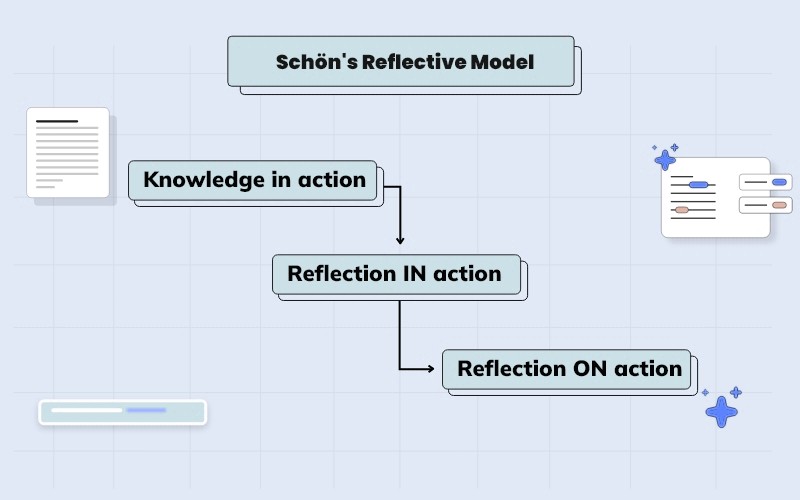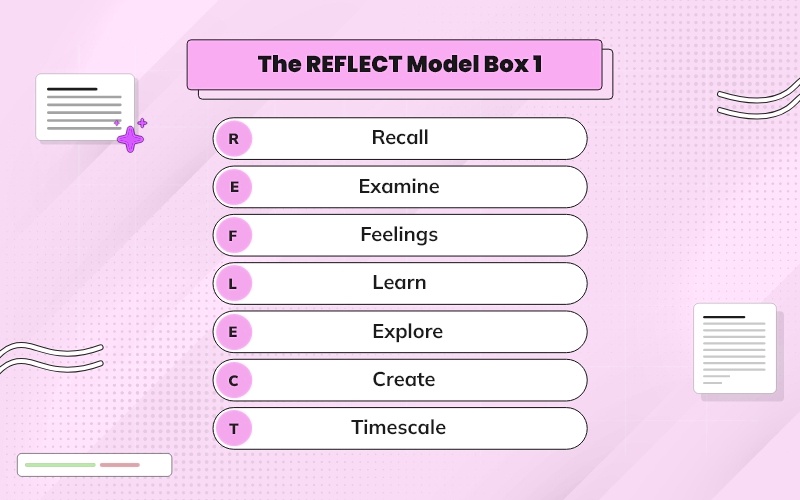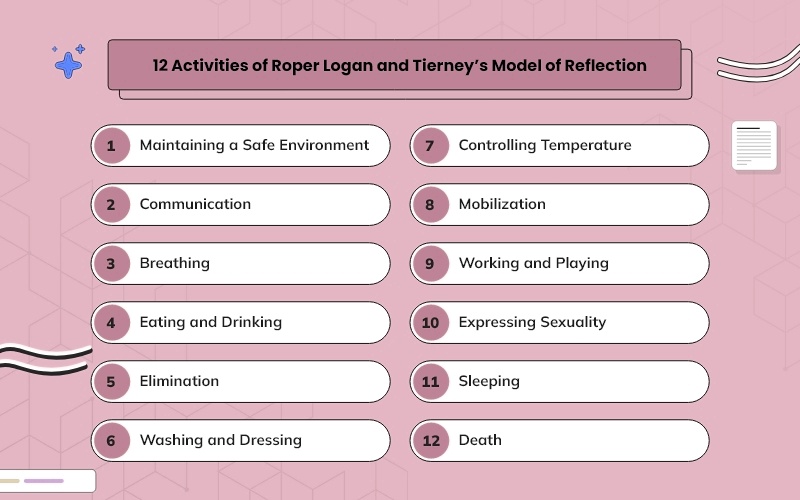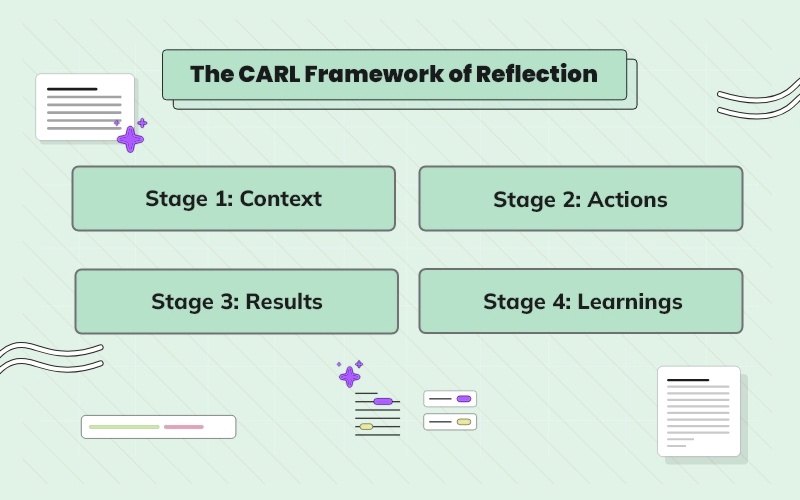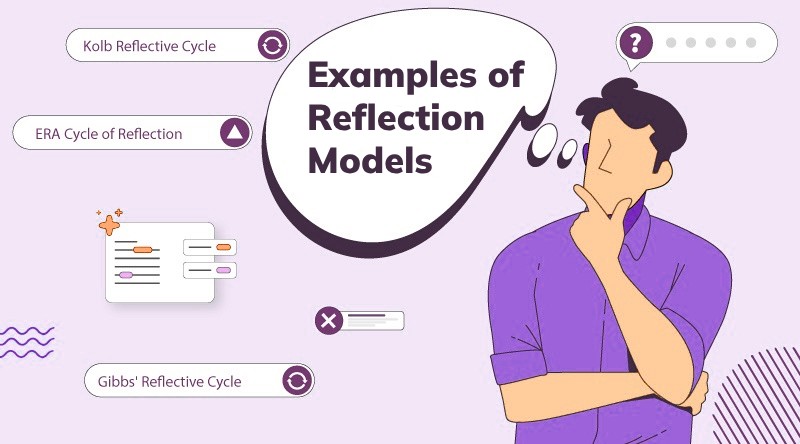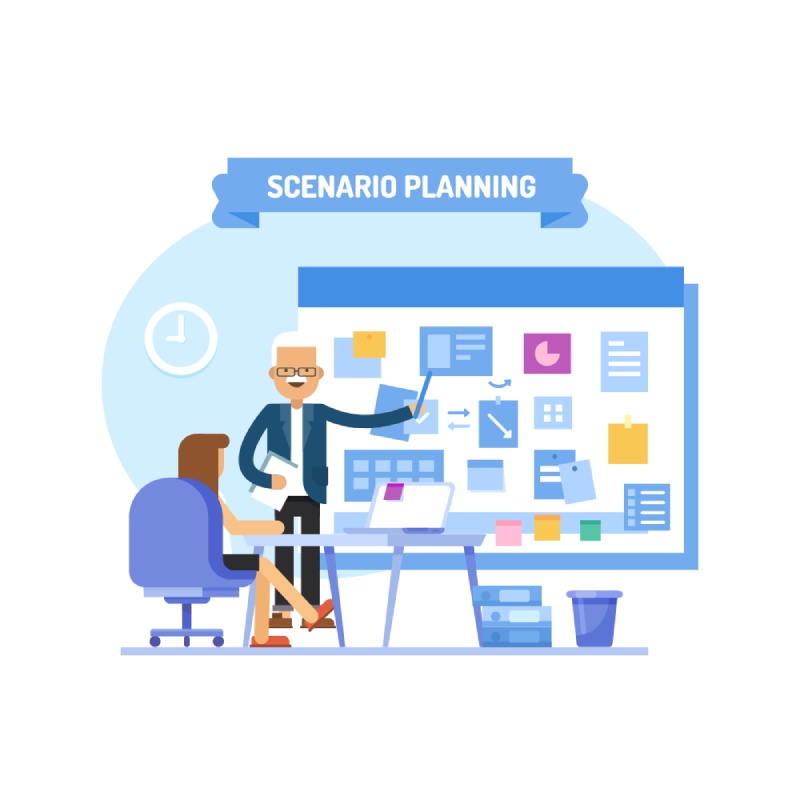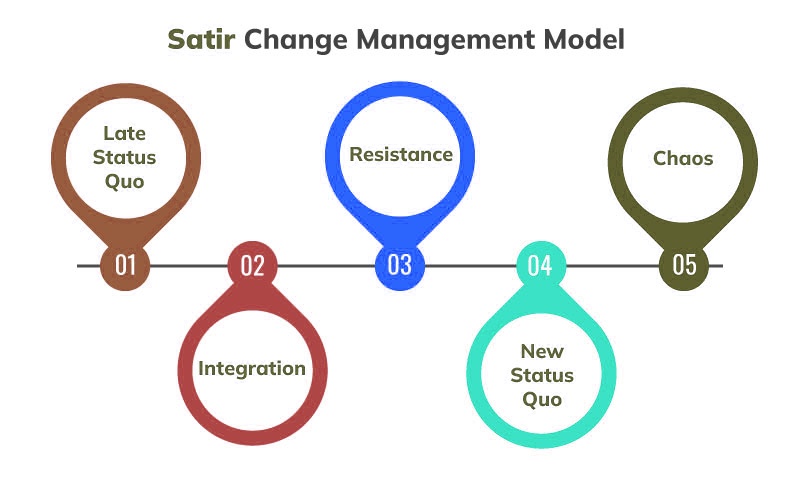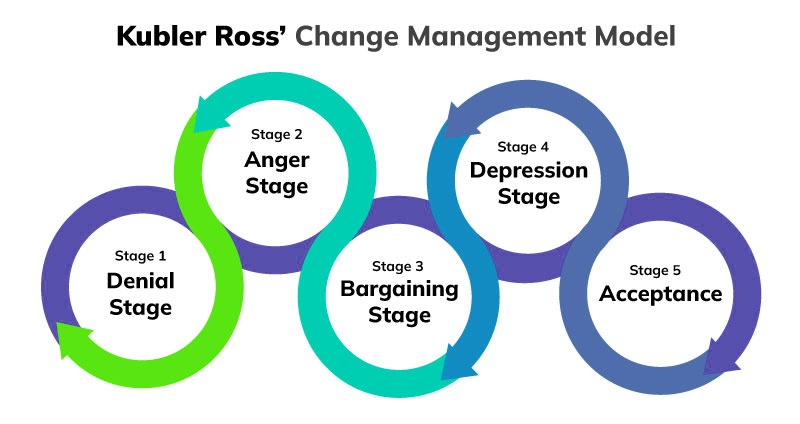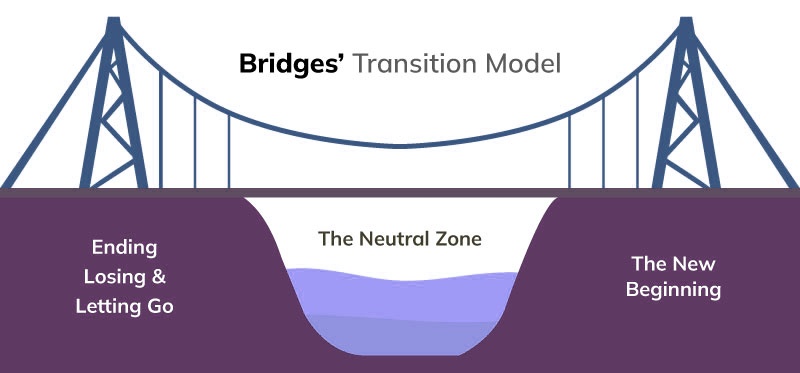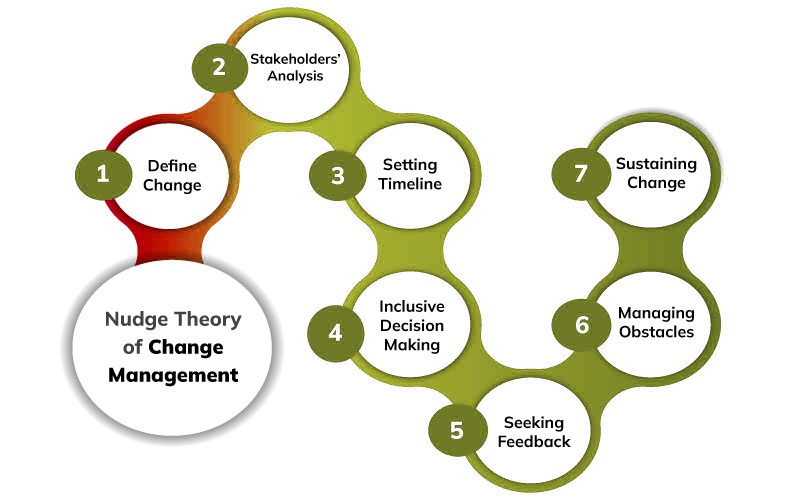Overview
Schon reflective model was given by Donald Schon in 1991 to provide a base for reflection. The model provides an additional element in reflection by differentiating reflection during and after the occurrence of an event. The use of this model helps in the quality enhancement work of practitioners by considering individual actions at the time of occurrence of an event and considering actions that could have been implemented to effectively deal with a particular situation. This model is different from all other reflection models as the use of this model is not a multi-stage or circular model, rather it is a type of reflection model that involves reflection during and after an event.
Table of Contents
This model of reflection mainly focuses on three concepts which include knowing in action, reflection in action, and reflection on action. Knowledge in action is less commonly used in this reflective model as it relates to the intuitive ability of an individual to perform certain tasks. For instance, knowledge in the action phase of a health practitioner may include visiting patients. Indeed, the two other commonly cited concepts are a reflection in and on the action which are mostly used during and after an event (Hébert, 2015). Reflection in action helps practitioners to become more responsive while dealing with some complicated situations and reflection on action allows an individual to spend more time considering the complexity of a situation and practices that could have been adopted to effectively deal with a situation.
The reflective model posits that practitioners often face unique challenges that cannot be addressed solely through technical expertise or routine problem-solving methods. Instead, Schön argues that professionals must engage in reflective practice, a process of critically examining their experiences, assumptions, and actions to improve their effectiveness and adaptability.
Students often confuses Schön's model with johns model of reflection cycle but the major difference between the both is that Schön's model majorly focuses on action and learning from experiences, while Johns model encourages a broader range of reflection while giving suitable question from various aspects.
Considering the use of Schon reflective model, this model is mainly used in nursing care as this model helps practitioners properly plan immediate responses to some situations and to learn from such experiences. The use of this model of reflection also helps to promote the continuous professional development (CPD) of nursing professionals by considering implicit knowledge. Schon reflective model also helps to nurture professional knowledge via reflection to further enhance the quality of care.
Three stages of Schon reflective model
Now, you must be thinking about how we can apply this model of reflection. Schon reflective model can be applied by following three steps which are discussed as follows:
Stage 1: Knowledge in action
The first step involved in this model is thinking about knowledge in action where a nurse can consider actions that are implemented in day-to-day operations beforehand. This can help to boost the confidence and strength of nursing staff. In this section, you will highlight what you already know and why that information is important. Some of the questions that can help you in answering this section of the reflection are
- What do you already know about the situation?
In this section, you will highlight the knowledge and skills that you already have and you think will help you deal with the situation more efficiently. - How is that information helpful?
In this, you will focus on emphasizing the reason you believe that the information you have will help you in dealing with the situation in a certain manner.
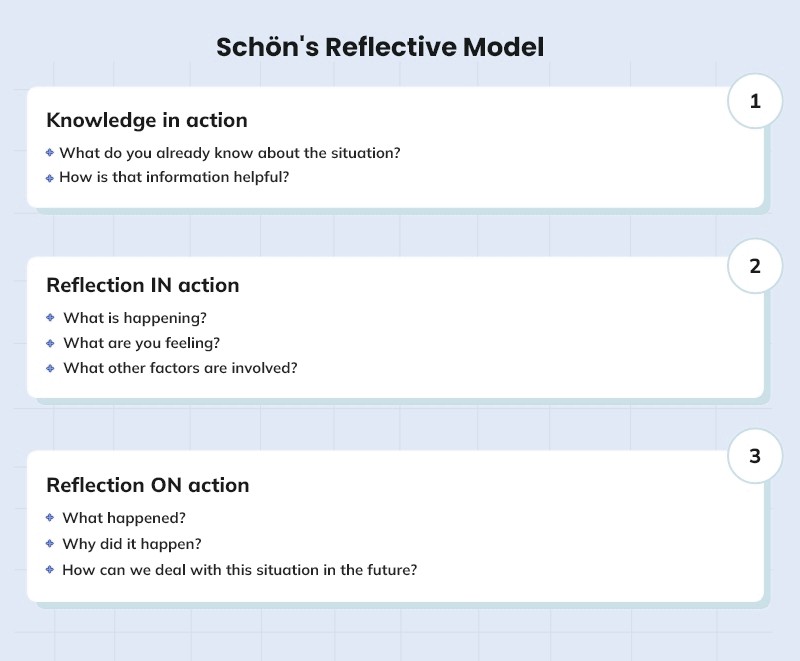
Stage 2: Reflection IN action
The second stage includes reflection in action where nursing staff can reflect on actions that can be undertaken to deal with this situation. This includes reflection during the doing stage where nurses reflect on their practice while the incident is occurring. Some assisting questions for the same are
- What is happening?
In this, you will highlight the current happening when you are in the situation and taking actions. - What are you feeling?
While answering this, you will shed light on the feelings you were experiencing at the time of the incident you are reflecting upon. - What other factors are involved?
Here you will highlight the involvement of other factors which can be people or other situations that contributed to the occurrence of the event.
Stage 3: Reflection ON action
The last stage of schon's reflective model is ‘reflection on action’ where practitioners can provide complete detail on the event after the event has happened. Questions that can help you in answering this section are listed below.
- What happened?
Once the situation has occurred, now you will sum up the whole incident and explain to the readers the whole context of the situation. - Why did it happen?
Here you will highlight the reasons you think contributed to the occurrence of the event. - How can we deal with this situation in the future?
Here you will highlight the action you will take in order to ensure that you deal with similar situations more efficiently in the future.
After critically understanding the model, for a better comprehension of the model, let’s take an example of the implementation of the model.
References
Hébert, C. (2015). Knowing and/or experiencing: a critical examination of the reflective models of John Dewey and Donald Schön. Reflective Practice, 16(3), 361-371. https://doi.org/10.1080/14623943.2015.1023281


